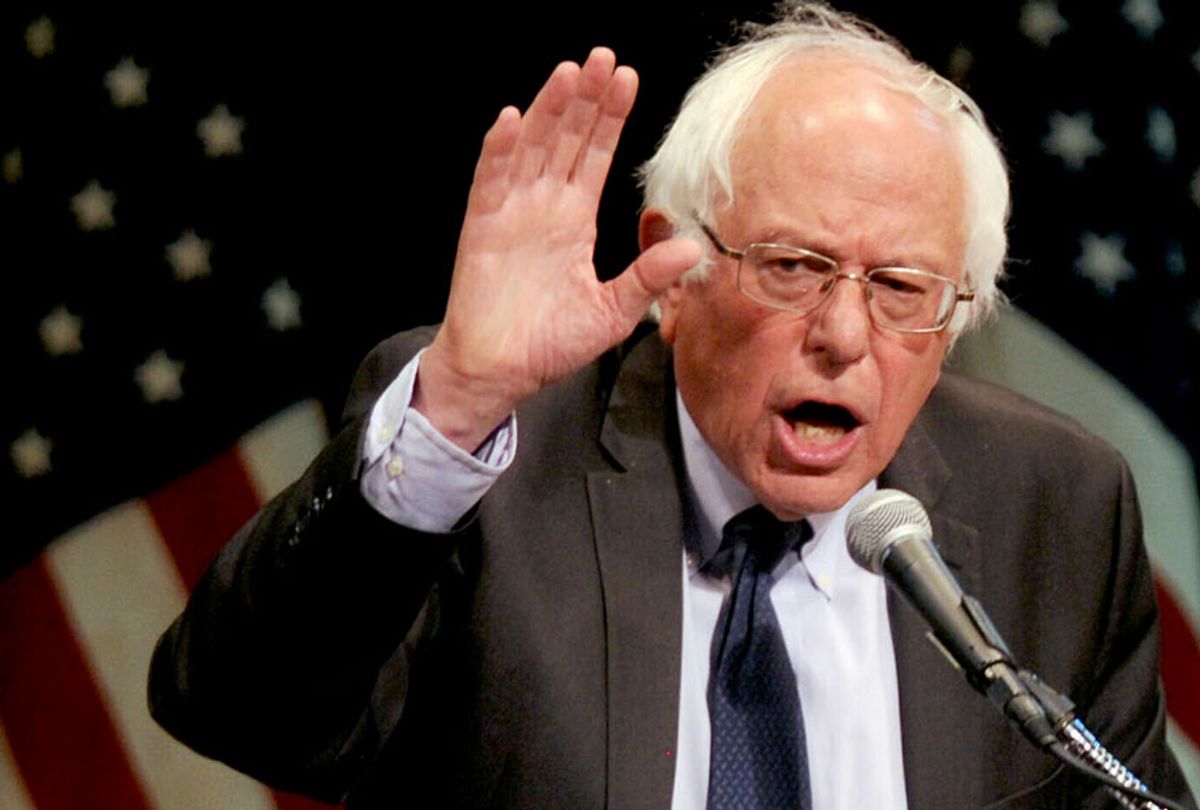Florida Democrats are condemning Democratic presidential candidate Sen. Bernie Sanders (I-Vt.) for refusing to call Venezuela's socialist President Nicolás Maduro a dictator.
Sanders, the self-described "democratic socialist," has not revealed whether he considers Venezuela's opposition leader, Juan Guaidó, as the nation's interim president, which is the view of the U.S. and a host of European and Latin American countries.
Florida Democrats, according to new report from Politico, believe that Sanders' position will benefit President Donald Trump and the Republican Party in the Sunshine State. The president held a rally in Miami on Monday, where he denounced Maduro and socialism, in an attempt to appeal to the state's Venezuelan-American voters heading into the 2020 election. As Politico noted, many Venezuelans, who have experienced socialism first-hand, have moved to Florida as the country's economic and humanitarian turmoil worsened under Maduro.
Following Trump's Monday event, Democrats in Florida have expressed concern that Trump's attempt to solidify his Latino support could help him grab support from an otherwise-reliable Democratic voting block in the country's biggest swing state, where presidential races have been famously decided by razor-thin margins. They were quick to reject Sanders' comments.
"He is not going to be the nominee of the Democratic Party. He has demonstrated again that he does not understand this situation," Rep. Donna Shalala, a Miami Democrat who represents Venezuelan exiles, told Politico. "I absolutely disagree with his imprecision in not saying Maduro must go." (Shalala formerly served as secretary of Health and Human Services under former President Bill Clinton.)
Sanders did not embrace Maduro in his Tuesday interview with Univision's Jorge Ramos, who mentioned Guaidó being declared the interim president of Venezuela by the country's National Assembly following Maduro's contested election. However, when the Vermont Independent was asked whether he recognized Guaidó as the legitimate leader of the country, he answered, "No."
"There are serious questions about the recent election," Sanders added. "There are many people who feel it was a fraudulent election."
In a follow-up question, Ramos asked Sanders if he thought Maduro was a dictator who should step down. Sanders would not answer either "yes" or "no."
"I think clearly he has been very, very abusive," Sanders replied. "That is a decision of the Venezuelan people, so I think, Jorge, there's got to be a free and fair election. But what must not happen is that the United States must not use military force and intervene again as it has done in the past in Latin America, as you recall, whether it was Chile, or Brazil, or the Dominican Republic or Guatemala."
Sanders added that he believes "the United States has got to work with the international community to make sure that there is a free and fair election in Venezuela."
Meanwhile, Florida's Democratic Party has made its position on Maduro clear.
"Florida Democrats have been unequivocal: We recognize Juan Guaidó as the President of Venezuela, denounce the legitimacy of the Maduro regime and his efforts to remain illegally in power," the group said in a statement.
Christian Ulvert, one of the state's top Democratic consultants for Hispanic outreach, called Sanders comments "extremely ignorant" in an interview with Politico. He reportedly wrote to the Democratic National Committee chairman concerning the location of the party's 2020 presidential convention, noting that Trump was trying to make strides with South Florida's Hispanic community with his anti-socialism message, while Sanders was muddling that message.
"This helps Trump and it makes our job harder as Democrats," Ulvert said, according to Politico. "What this will do is whip into a frenzy South Florida’s Hispanic community on both sides of the aisle. It’s an unnecessary distraction."
The U.S. was the first to recognize Guaidó as the legitimate president of Venezuela last month – and has suggested that it could use military force to ensure aid delivery or protect U.S. business interests. About 64 other nations have followed the U.S. in supporting Guaidó. The United Nations continues to recognize Maduro, although it has called for talks, as roughly 50-member nations have vowed to support Maduro, including U.S. political foes China, Cuba, Iran, North Korea, Russia and Syria.
The issue has entered the 2020 Democratic primary for president, with most candidates revealing their positions.
Sens. Kirsten Gillibrand of New York, Cory Booker of New Jersey, Amy Klobuchar of Minnesota, along with former Vice President Joe Biden and former Rep. John Delaney of Maryland have affirmed their support of Guaidó as the legitimate leader of Venezuela. Meanwhile, Sen. Elizabeth Warren said "Maduro is obviously a dictator" and suggested she approved of the "diplomatic part" of Trump's support of Guaidó, although she criticized his "saber rattling." And Hawaii's Democratic Congresswoman and presidential candidate Tulsi Gabbard said the U.S. should not "go in and choose who should be the leader of Venezuela. That is not something that serves the interests of the Venezuelan people."
South Bend mayor Pete Buttigieg and Sen. Sherrod Brown of Ohio did not reveal their views on recognizing Guaidó but called for free and fair elections in Venezuela. Sen. Kamala Harris of California, Washington Gov. Jay Inslee and former secretary of Housing and Urban Development Julián Castro have not yet weighed in on the hot-button topic.



Shares